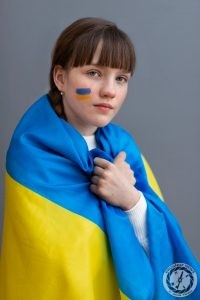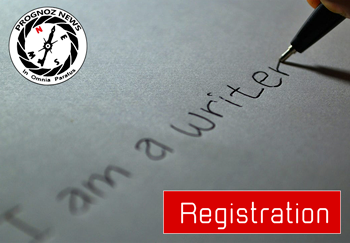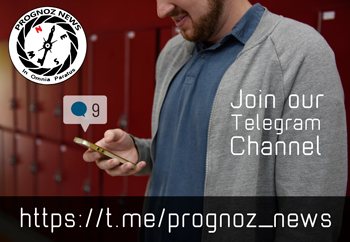Bondage and Collective Will in Wartime Ukraine

By Matthew Parish, Associate Editor
There is a remarkable social chemistry that has come to define Ukraine since February 2022: a sense of shared bondage and collective will that transcends national origin. In this embattled nation, the distinction between Ukrainian and foreigner has become blurred by circumstance and moral conviction. The war has created a community forged not of blood or birth, but of belief—belief that tyranny must not prevail, that liberty and decency are worth defending, and that the defence of Ukraine is the defence of a larger civilisation. The foreigner who stays, who contributes, who risks his or her safety for Ukraine’s cause, finds themself woven into a moral fellowship deeper than any peacetime citizenship could confer.
The Social Contract of War
In wartime Ukraine the social contract is no longer abstract. It is lived daily in the streets of Lviv, the cellars of Kharkiv, the front lines near Pokrovsk. Ukrainians and foreigners alike accept privation, fear, and sacrifice as the necessary conditions of survival. The war has stripped life to essentials: the right to one’s home, one’s language and one’s dignity. The foreign volunteer, journalist, medic, or entrepreneur who remains in Ukraine is no longer an outsider but a participant in a collective struggle for continuity of values. Shared peril has become shared purpose.
This moral equality before danger creates a fraternity that needs no declaration. A Polish volunteer driver transporting supplies to Donbas, an American medic treating soldiers near Kramatorsk, and a Ukrainian mother cooking for displaced families in Ternopil—all recognise one another instantly as allies. Each is bound to the others not by law or flag, but by the conviction that retreat would mean not merely military defeat, but the death of principle itself.
The Bondage of Necessity and Choice
War creates a peculiar form of bondage—one chosen and yet inescapable. Those who remain in Ukraine, whether citizens or foreigners, are united by necessity but also by moral autonomy. They have decided that they cannot, in good conscience, look away. This is not the bondage of servitude, but of solidarity. It is the chain that binds comrades in a trench, neighbours during an air raid and strangers who share a single generator’s light through a blackout.
This chosen bondage carries its own kind of freedom. To live under bombardment and remain faithful to one’s purpose is to transcend fear. Ukrainians and their foreign allies are liberated from indifference; they live intensely, bound to one another by a common moral rhythm. In this sense, Ukraine’s wartime society is both stoic and joyous—its people weary but profoundly alive.
The Collective Will as a Moral Force
The collective will that animates wartime Ukraine is neither orchestrated nor propagandised. It arises organically from the awareness that the adversary is absolute in her ambition to annihilate. The Russian invasion has simplified the moral landscape to an extraordinary degree: there can be no compromise with a force that denies a nation’s right to exist. Thus Ukrainians and foreigners alike find clarity in defiance. The question of “why we fight” needs no further articulation; it is evident in every destroyed school, every abducted child, every city reduced to rubble.
This moral clarity unites a diverse coalition of souls. Amongst them are the foreign volunteers who repair drones, translate military documents or distribute humanitarian aid. There are diplomats who stay when others flee, artists who continue to paint, journalists who chronicle the war’s anguish. They are all participants in the same moral resistance. To them, Ukraine’s cause is not a local one but a universal stand against cruelty and falsehood.
A New Civic Identity
The result is the birth of an unspoken civic identity that transcends borders. Foreigners who live in Ukraine find themselves adopting its rhythms and idioms, not from affectation but from belonging. The collective will of wartime Ukraine demands integration, not assimilation. It allows every participant to retain her individuality, yet insists that all act in harmony when danger calls. This is a form of civic unity Europe has not witnessed in generations—one founded not on bureaucracy or rhetoric, but on courage shared in the face of death.
For Ukrainians, the foreign presence is more than symbolic; it is an affirmation that their struggle is understood, that their pain and perseverance have meaning beyond their own borders. The sight of foreigners fighting, working, or even simply staying in Ukraine, becomes proof that the world’s conscience is not dead.
The Price and Promise of Brotherhood
Yet such unity comes at a price. The longer the war endures, the more exhaustion seeps into the spirit. Shared purpose must constantly resist despair. The foreigner who stays learns to accept loss as an everyday companion; the Ukrainian learns that gratitude must sometimes replace tears. But this is also the essence of fraternity—to shoulder one another’s burdens, to absorb another’s grief as one’s own.
If Ukraine survives—and she will—it will be because this fusion of wills has created something stronger than fear. The nation’s destiny is now shared with thousands of foreigners who have invested their labour, intellect, and faith in her future. Together, they have forged a civic nation defined not by ethnicity but by conscience.
In that sense, wartime Ukraine is a crucible for the rebirth of Europe’s moral imagination. Her people, and those who have chosen to stand beside them, embody a truth that liberal societies too easily forget: that freedom without sacrifice is fragile, and that only when individuals bind themselves willingly to a collective good does civilisation endure.
8 Views






